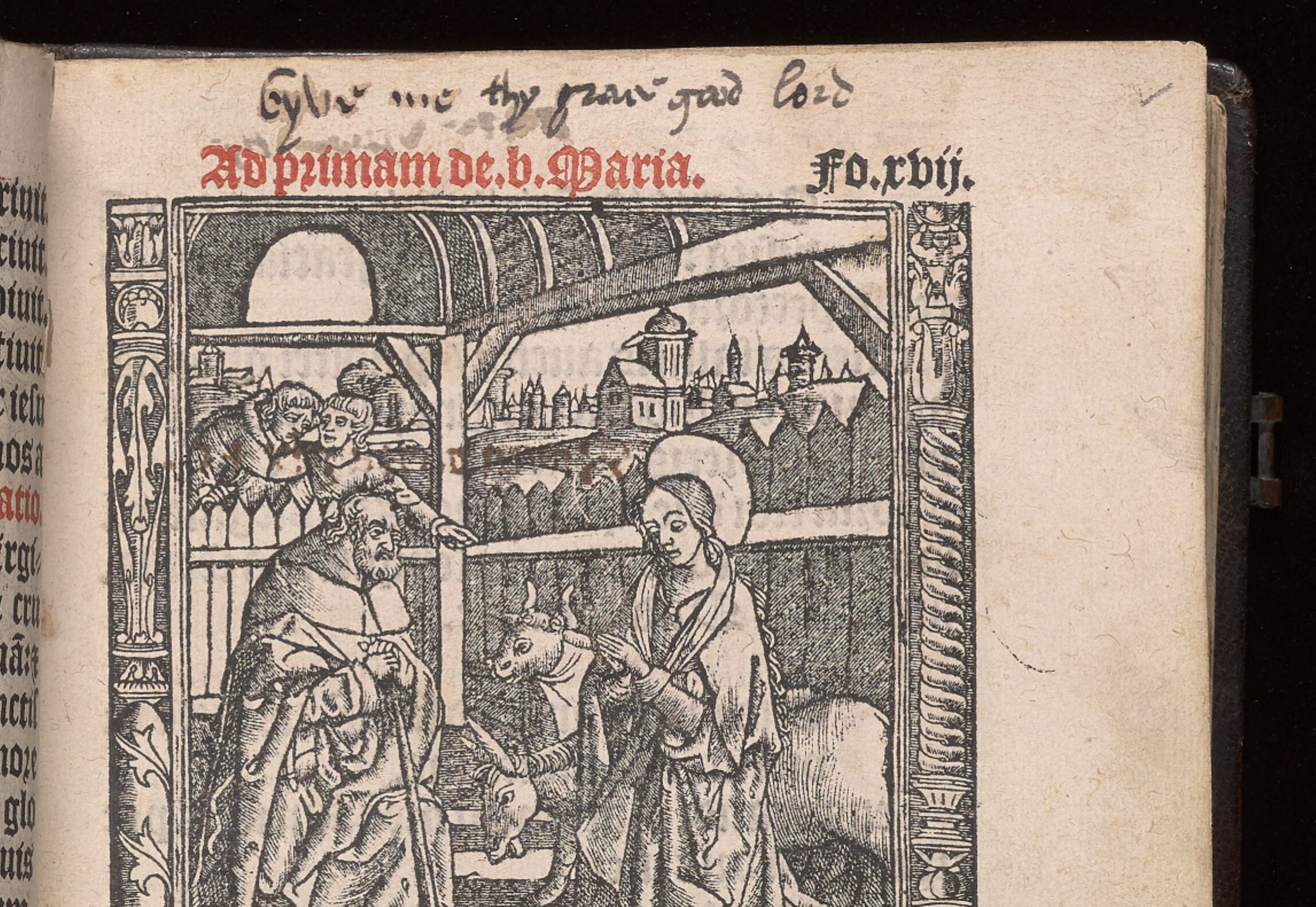This Book of Hours printed at Paris in 1530, bound with a Psalter printed at Paris in 1522, belonged to Sir Thomas More, lord chancellor of England and a saint in the Roman Catholic Church. Henry VIII imprisoned More on a charge of treason, and after the pretense of a trial, beheaded him on July 6, 1535.
In the margins of this Book of Hours which he had with him in the Tower of London, More has written a prayer which is his farewell to the world. In the margins of the Psalter he has made Latin notes related to the composition of his last work, the Dialogue of Comfort against Tribulation, which was published after his death.
Read about More’s Prayer Book in Yale University Library Gazette, 1968
Read Ray Clemens “object lesson” on the book: Yale Alumni Magazine, 2015
Text of Thomas More’s prayer in the margins of his Book of Hours
Give me Thy grace, good Lord:
To set the world at naught;
To set my mind fast upon Thee,
And not to hang upon the blast of men’s mouths;
To be content to be solitary,
Not to long for worldly company;
Little and little utterly to cast off the world,
And rid my mind of all the business thereof;
Not to long to hear of any worldly things,
But that the hearing of worldly fantasies may be to me displeasant;
Gladly to be thinking of God,
Piteously to call for His help;
To lean unto the comfort of God,
Busily to labor to love Him;
To know mine own vility and wretchedness,
To humble and meeken myself under the mighty hand of God;
To bewail my sins past,
For the purging of them patiently to suffer adversity;
Gladly to bear my purgatory here,
To be joyful of tribulations;
To walk the narrow way that leadeth to life,
To bear the cross with Christ;
To have the last thing in remembrance,
To have ever afore mine eye my death, that is ever at hand;
To make death no stranger to me,
To foresee and consider the everlasting fire of hell;
To pray for pardon before the judge come,
To have continually in mind the Passion that Christ suffered for me;
For His benefits incessantly to give Him thanks,
To buy the time again that I before have lost;
To abstain from vain confabulations,
To eschew light foolish mirth and gladness;
Recreations not necessary, to cut off,
Of worldly substance, friends, liberty, life and all,
to set the loss at right naught for the winning of Christ;
To think my most enemies my best friends,
For the brethren of Joseph could never have done him so much good
with their love and favor as they did him with their malice and hatred.
These minds are more to be desired of every man than all the treasure of all the princes
and kings, Christian and heathen, were it gathered and laid together all upon one heap.
